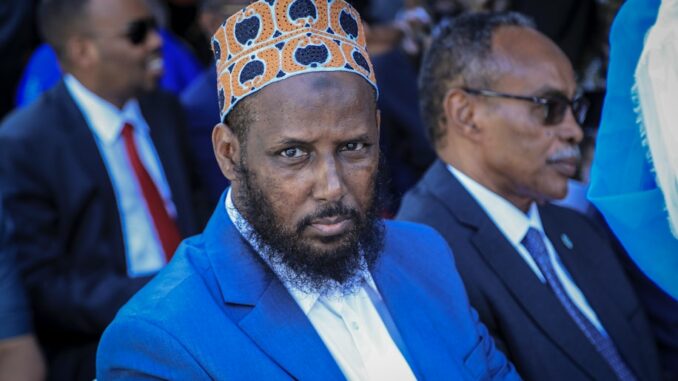
A former leader of the radical Islamist Shebab turned politician has been appointed Minister of Religious Affairs in the Somali government, announced Tuesday by Prime Minister Hamza Abdi Barre.
The 53-year-old Muktar Robow, aka Abu Mansour, publicly defected in August 2017 from the movement he helped founded and which has been waging a 15-year insurgency against the internationally backed federal government.
The former Shebab spokesman was once the subject of a $5 million reward offered for his capture by the US government, but in 2013 he broke with the then head of the insurgency, Ahmed Abdi Godane. He took refuge in the Bakool region (south-west), but did not completely break with the Shebab.
In December 2018, he was arrested while running for the presidency of the South West federal state. The government, led by President Mohamed Abdullahi Mohamed, also known as Farmajo, accused him of having “organized a militia” and of having “never renounced his extremist ideologies”.
He has since been under house arrest in the capital Mogadishu.
Appointed on 15 June by the new President Hassan Sheikh Mohamoud, Prime Minister Hamza Abdi Barre has nominated 75-member cabinet.
He told a press conference that he had “selected them on the basis of their academic background, experience and sense of fairness”.
“I expect (them) to respond to the needs of the country, with the hope that they will pave a new path for Somalia and I am confident that they will implement the president’s grand vision and agenda of a Somalia at peace with itself and the world,” he added.
Many challenges lie ahead for the government, which has yet to be approved by a vote in parliament.
